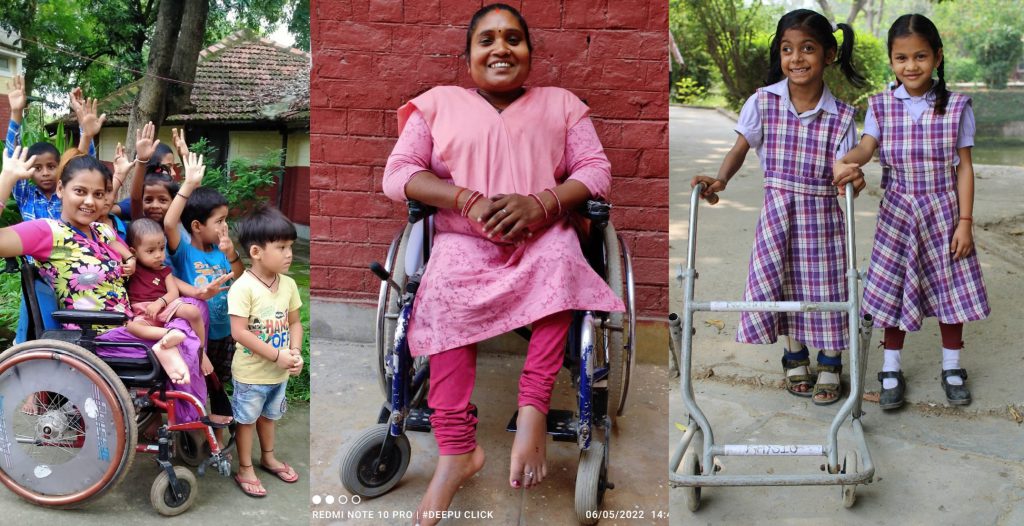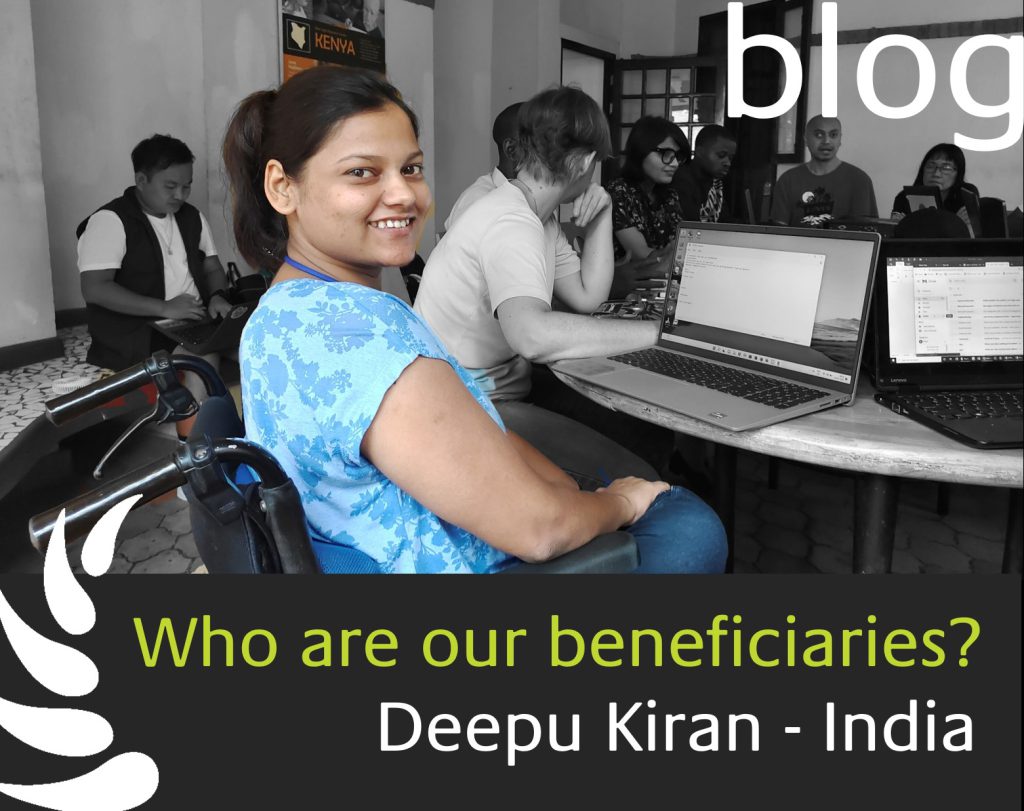from Sabriye Tenberken and Deepu Kiran
Our thirteenth course, which we call “The green room”, has been running for a few weeks now. In television studios and theatres, the “green room” is the room where the performing “stars” can prepare themselves. And here, it is also a kind of preparation place before the rather intensive course starts.
During the Greenroom course, we also talk to our new participants about their and our “stakeholders”. We distinguish between the “focus group”, those we work with, the “target group”, those we address, and the “beneficiaries”, the group that benefits from what we do.
“And who are the beneficiaries of kanthari?” we ask in a workshop.
“We, the participants, of course!”,
Well, is that right? Of course, it’s nice that the participants see themselves as beneficiaries, but we see them more as our Focus Group because together with kanthari graduates we strive for positive change. In our eyes, the real “beneficiaries” of kanthari are the beneficiaries of our participants. In the coming blog posts, we will introduce these Beneficiaries and thus a little bit our participants, that is, they share their own stories.
When Deepu was three years old, she was abandoned by her parents. Deepu could speak, but other than her own name, she did not know her parents’ names. When I asked her if she wanted to locate her parents, she said she was not eager to meet them, but she was not angry with them either. “If I saw them, I would thank them for the good life I had in Kiran.” https://kiranvillage.org/
At that time, the local police took her to Kiran, an organization founded and run by Sangeeta, a passionate nurse. A few days ago, Sangeeta visited us and Deepu who had arrived a day earlier at the kanthari campus. Originally Sangeeta is from Switzerland but has been living in India for 50 years. We had a lot to talk about and certainly could have talked for a long time. There will be an extra blog about Sangeeta and her impressive center at a later stage, but in this blog, we focus on Deepu, or better, we let her speak. She will not talk about her own inspiring life journey yet, but about her target group.
Deepu applied to kanthari with a project idea to provide early childhood support for mothers with disabilities and children with and without disabilities. In a short presentation, she describes a person in her future target group. It is a resident of Kiran village:

“Her name is Asha, and she is from Varanasi. Just like me, Asha has polio in both legs. She is a wheelchair user, but she can also walk with calipers, a supporting device. Asha joined Kiran in 2001. Back then, Kiran was also my home. Kiran Society is a non-profit, non-political organization working in an inclusive way for the holistic development of children and persons with and without disabilities.
When Asha came to Kiran, she received treatment in the form of physiotherapy, and then she got admission to Grihini For 3 years. Grihini is a society dedicated to women’s empowerment. There she learned all about art and design.
Her mother is a housewife. Her father died 10 years ago. Asha has six siblings and today, being the eldest, she is the breadwinner in the family.
Like many women with disabilities, she was always worried that she would never marry and have children on her own. But in 2016, she got married. Then a baby boy came into her life. Asha felt blessed and very happy. But raising a child as a disabled mother came along with many challenges. While her in-laws were supportive, her own family didn’t help her at all. Whenever the boy fell ill, her husband took him to the hospital. The fact that she could not do this herself, made her feel bad. Asha often mentioned how much she wished to be able to take care of her child just like a non-disabled mother could.
Now she is looking for her child to grow up fast so that she doesn’t have to worry about him.
Asha is not very educated. For her, it is important to teach her son good manners and good habits such as respecting people, throwing trash into the dustbin, and so on. The boy is now two years old. A shy little boy. But once he is among familiar persons, he becomes very talkative. He learns quickly and remembers fast. Also, he is helpful and understands that his parents are disabled.
Deepu’s future project would be very helpful for people like Asha.
The 13th kanthari course has started and we are looking forward to being a part of Deepu’s journey all the way to the realization of the center!
We wish Deepu lots of success in realizing her dream.



